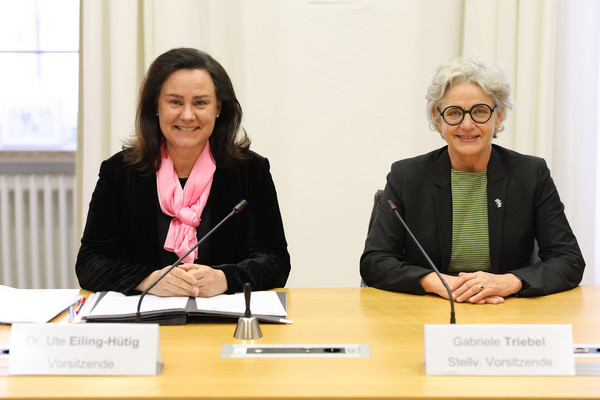Committee on Education and Cultural Affairs
The work of the Committee on Education and Cultural Affairs focuses on school policy in Bavaria, from primary schools, secondary and vocational schools to adult education and political education.
The committee on Education and Cultural Affairs is one of the Bavarian State Parliament’s 14 standing committees with a total of 18 members of Parliament: eight CSU members, three members each from FREIE WÄHLER (FW), AfD and Alliance 90/The Greens (GRU) and one SPD member.
The range of tasks covers all areas of school policy; from curricula to internal school development and measures for teacher training through to school funding.
The committee is therefore involved in all matters relating to pupils, teaching staff, in particular the qualification and recruitment of teaching staff and work with parents.
The Education Committee is responsible for advising on laws and motions. Reforms that significantly change school life are largely reflected in the Bavarian Education and Teaching Act (BayEUG), which summarizes the entire Bavarian school system.
One of the committee’s main tasks is to continually adapt this law as necessary. The joint teaching of children with and without special educational needs (inclusion) is also enshrined in the BayEUG. The UN Convention on the Rights of Persons with Disabilities has thus been implemented. The committee will monitor further developments.
Other challenges for the coming years include: the further expansion of all-day offers and all-day schools, teacher training, equal educational conditions in urban and rural areas as well as good integration of children with a migration background and ensuring participation for all children and young people.
Promoting sustainable developments in education and preparing pupils for responsible participation in our society is also essential for the Committee. Civic education is a fundamental building block of an active and informed citizenry that appreciates and upholds the values of democracy. In 2020, the state government’s “Overall Concept for the Culture of Remembrance” was adopted, which provides a framework for the further development of Bavaria’s central memorials to the crimes of the Nazi dictatorship and its victims. The committee receives regular reports and thus participates in the discussion.
Adult education is another important topic for the committee. This involves the continuous promotion of lifelong learning and the adaptation of educational opportunities to the needs of a constantly changing society.
The committee regularly consults experts in preparation for decisions.
The committee also deals with your concerns. By regularly processing petitions from citizens and taking into account the wishes and suggestions for improvement of associations and interest groups, the committee ensures that your voice is heard.
Meetings
The meetings always take place on Thursdays during sitting weeks. They are convened and chaired by the chairman. Besides the committee members and head of the committee office, state government representatives responsible for the specific agenda items also attend.
With important political issues, responsible members of the government are also present. The Bavarian State Parliament‘s shorthand writers’ service documents the meetings.



















